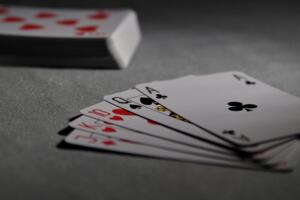Keno has a long history in New Zealand, attracting players from diverse backgrounds for many generations.
Sources cite that Emperor Cheung Leung of the Han dynasty invented the game in the 2nd century BC in China. Today, Keno remains one of the oldest games played at casinos worldwide.
Given its popularity, there seems to be no end to its growth – helped along by a wide array of licensed and regulated iGaming sites catering specifically for New Zealanders.
Land-based and online gambling is on the increase in New Zealand. Read on to find out more.
Blast from the past
Keno is essentially a numbers game—a blend of lottery and bingo—that joined Lotto New Zealand in 1994 as the fourth game available for New Zealand residents, following Lotto Strike in 1989, Scratch cards in 1993, and Instant Kiwi in 1994. A decade later, it has become one of the most popular lottery-style games among Kiwis.
While little has changed since the game arrived on the New Zealand betting scene, this game has led the way for change in the iGaming industry – for instance, when Lotto New Zealand launched the digital, online sales channel MyLotto on 26 May 2008, allowing purchasers of Bullseye, Lotto, Keno etc to buy their tickets online.
Legalisation of gambling in New Zealand
The rest of the world tumbled into controversy during the first half of the 20th century, but in New Zealand, acceptable codes and rules were in place for most forms of gambling.
A year after the amendment of the Temperance Act, New Zealanders were subjected to yet another regulatory law. This was the Gambling Act of 1908 that, although still prohibiting gambling, allowed betting on popular sporting events, including horse racing.
Throughout the latter part of the 20th century, the law was tightened three times and its prohibitions were expanded, leaving just a few betting options on things like horse racing. However, the law was repeatedly amended.
Casinos and lotteries were legalised, and by late 1961, all land casinos became licenced too. While discussing the issue in 2003, the government created a special oversight body, the Totalizator Agency Board (known as the TAB), which still handles licensing, safety, standards and fairness nowadays, though the future of online gambling remains unclear.
With a few important exceptions (including online sports betting), the operation of any online gambling site from within New Zealand is prohibited by the Gambling Act. But foreign-controlled companies licensed by one of the many offshore supervisory authorities – Curacao and Malta being the most common – are considered legal under New Zealand law.
Kiwis can play legally at offshore casinos, but the onus is on them to make sure that the casino they use is licensed and properly run.
It’s a good idea for you to check whether an online casino is legit. You should always check a reputable site such as betkiwi.co.nz, which is a trusted online gambling resource focusing on New Zealand players. It features reviews of various casinos and online sports betting sites, and supplies information concerning gambling options, game security and transaction protection, ensuring that New Zealand players can play legally and safely.
Factors influencing the popularity of Keno in New Zealand
We can think of several reasons New Zealand is enjoying a boom in Keno.
You don’t need to learn any rules or strategy; anyone can play it. Another possible reason could be the prospect of winning large (or even small) sums of money from very little investment.
Here are some of the main attractions of this classic lottery game:
- Easy to play: Keno is easy to understand. Beginners and seasoned players who want a break from strategy-based casino games can easily play Keno competitively.
- Control over gameplay: Keno is purely based on luck, but you still have control over the gameplay. You can choose your numbers, wager an amount you are happy with, and play at your own pace.
- Availability: Casinos generate a lot of revenue from Keno, and the popular game can be found at numerous online and land-based casinos in New Zealand.
- Fun: Keno offers NZ gamblers endless entertainment. The excitement of winning is unmatched, making gameplay truly satisfying.
- Mobile compatibility: New tech, particularly HTML5, makes Keno appealing to young adults who can play on their mobile devices.
Popular Keno variants in New Zealand
Given this game has been around for many centuries, it is clear that it comes in many variants. New Zealanders are used to the following lottery-style game variants:
- Caveman Keno: The New Zealand community is a big fan of this prehistoric-themed edition with its three wild-card numbers. Players have the opportunity to determine these digits before each drawing, and win a multiplier if they strike it twice.
- Cleo Keno: This game’s hotspot denotes the spot for each round; players get 12 free games if they score the hotspot with the last ball.
- Klub Keno: You’ll like this version’s special StarBall that pays you double if it lands on any of your numbers.
- Power Keno: This is unique because it plays up to 10 cards at a time. Unlike the average game of bingo that requires you to dab/mark only one card at a time, Power Keno allows for multi-dabbing action.
- Superball Keno: The main attraction in this variant is, of course, the Superball feature that grants x4 when hit.
Understanding the preferences of different age groups for Keno in New Zealand
Keno attracts diverse players, and people of all ages enjoy playing it for different reasons. For older players, the traditional gameplay, which is on par with bingo and its social aspect, is most appealing. Playing Keno with family or friends helps maintain friendships, allowing people to get out and socialise.
Younger players are drawn towards the convenience and digital aspect of the game and are more likely to play on their mobile phones or tablets.
From our extensive research, it seems that people between the ages of 24 and 54 are more likely to be involved in Keno and other gaming and gambling activities. However, there also seems to be a spike in people over 65.
Exploring the cultural influences on Keno’s popularity in New Zealand
Culturally, Keno establishes itself through its presence in community activities and real and virtual worlds. At fairs, festivals and social gatherings, Keno’s traditional social or communal experience binds the people of a cultural community together.
Keno is a game that almost all cultural groups in New Zealand know. The popularity of Keno in New Zealand can be proved by cultural influences that attract bettors to Keno.
Bars, pubs and clubs quite often host Keno games. The game’s presence in public places attracts diverse cultures to come together and appreciate its benefits. These cultural and social activities undoubtedly attract different demographics to play Keno.
From our thorough research, we have learned that Maori women are more disposed to gambling. According to both the Department of Internal Affairs for the New Zealand government and a research paper into problem and non-problem gamblers in New Zealand, female Maori citizens make up a significant percentage of those who gamble regularly in New Zealand.
According to various other studies we have checked online, in New Zealand, women gamble more than their male counterparts.
Examining the regional variations in Keno’s popularity across New Zealand
We found it clear that Keno – and gambling in general – is more popular in larger urban areas.
Auckland and Wellington, where plenty of pubs, clubs, casinos and gambling venues, came out on top, with Christchurch coming in third.
Again, women in these areas are more likely to play Keno and be involved in other gambling activities.
Its prevalence is low in rural areas (where populations are more dispersed). Still, we will see hearty participation when a big event with Keno at the local fair helps forge community spirit.
Conclusion
No wonder the game has become an integral part of the Kiwi culture. Across the country, NZ casino enthusiasts are hooked on the game’s brilliant mixture of skill in picking the right numbers and the chance of them being drawn.
This cocktail regularly gets its pulses racing when it hits the tables. Add in more than just a hint of a chance to win big; it is unsurprising that folks from all walks of life continue to flock to the table.
Given that innovation and tech continue to push boundaries, it seems reasonable that we can expect to see many more seductive gaming offerings emerge in this country’s gambling culture.

